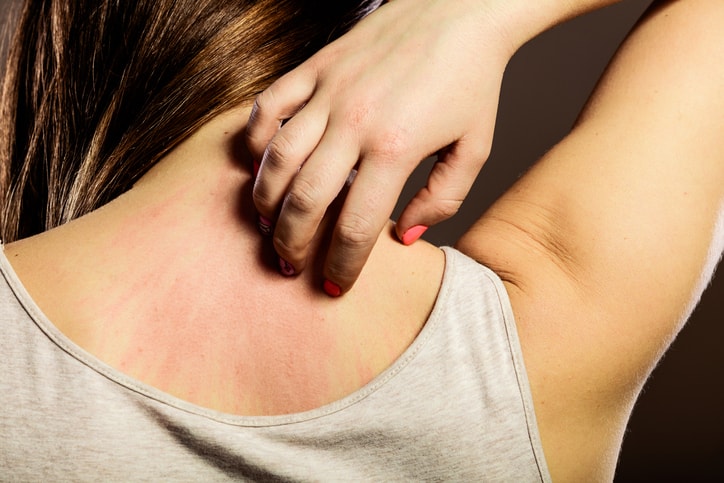Is My Rash Caused By Allergies?
You’ve developed a skin rash, and you’d like to get to the bottom of its cause. Skin rashes can come from a number of causes, but the most common is a skin allergy. Could your skin rash be the result of a skin allergy?
What Are Skin Allergies and Their Common Symptoms?
When something comes into contact with your skin, and your body's immune system thinks it's under attack, your body can react by sending its defenses against the allergen. The result is a rash, called allergic contact dermatitis, that's red and itchy at the point of contact. If you’re experiencing redness and itchiness, with or without hives, it could signal a skin allergy.
What Are Different Types of Skin Allergies?
- Contact dermatitis happens when you come in contact with an allergen or something that irritates your skin, but there are other types of skin conditions that are considered skin allergies.
- Eczema, known as atopic dermatitis, usually appears as dry, cracked, sensitive skin. Red, itchy patches develop that can go away, then come back. Eczema flare-ups can cause your skin to ooze from fluid-filled blisters and itch severely.
- Hives are swollen, itchy skin welts that look pale red or skin-colored and turn white in the middle when you press on them.
Your dermatologist can conduct a skin exam and tests to find the cause of your skin reaction and can recommend treatment to alleviate your symptoms.
What Are Some Common Things People Develop a Skin Rash From?
The most common allergens that can cause skin allergies include:
- Cleaning products
- Latex
- Chemicals
- Fibers
- Food
- Plants, such as poison ivy, poison oak and poison sumac
- Insect sprays
- Sunscreens
- Pollen
- Fragrances
- Nickel (may be found in jewelry, makeup, shampoos, and other common items)
- Cigarette smoke that settles on your skin
How Do You Know If a Rash Is Caused by an Allergy?
Your dermatologist can run skin tests to find out what you’re reacting to and try to find the exact reason. Unless you can pinpoint it, your doctor can't determine what touched your skin in a specific spot on a specific day.
What your doctor can do is run what's called a TRUE test to see what you're sensitive to. A TRUE test consists of a series of patches placed on your back, which contain possible allergens. After a few days of wearing the patches, your physician evaluates your skin’s response and makes a diagnosis.
What Can You Do If You Have a Skin Allergy Reaction?
If you're experiencing skin swelling, redness, and/or itching, you can reduce these symptoms by applying ice and topical creams that contain corticosteroids. Make an appointment with your dermatologist if that doesn't work, or if flare ups multiply or get worse. A dermatologist has the specialized training and expertise to accurately diagnose your condition and provide relief for your symptoms.
Your doctor may prescribe a topical cream or oral medication to help relieve your discomfort. Antihistamines and moisturizing ointments may be recommended to relieve irritation and dryness. It’s rare, but if you’re experiencing a severe skin allergic reaction, immediately contact emergency medical help. An allergic reaction emergency is often characterized by swollen lips and shortness of breath.
If you’re suffering from a skin allergy and need symptom relief, our experienced dermatologists at the Skin Center of South Miami can help. Our team of skin specialists provide expert care and skin exams that effectively detect and treat skin allergies. Our team is dedicated to delivering personalized dermatology care for everyone. Call us at 305-740-6181 or fill out the form on this page to schedule a consultation today.
